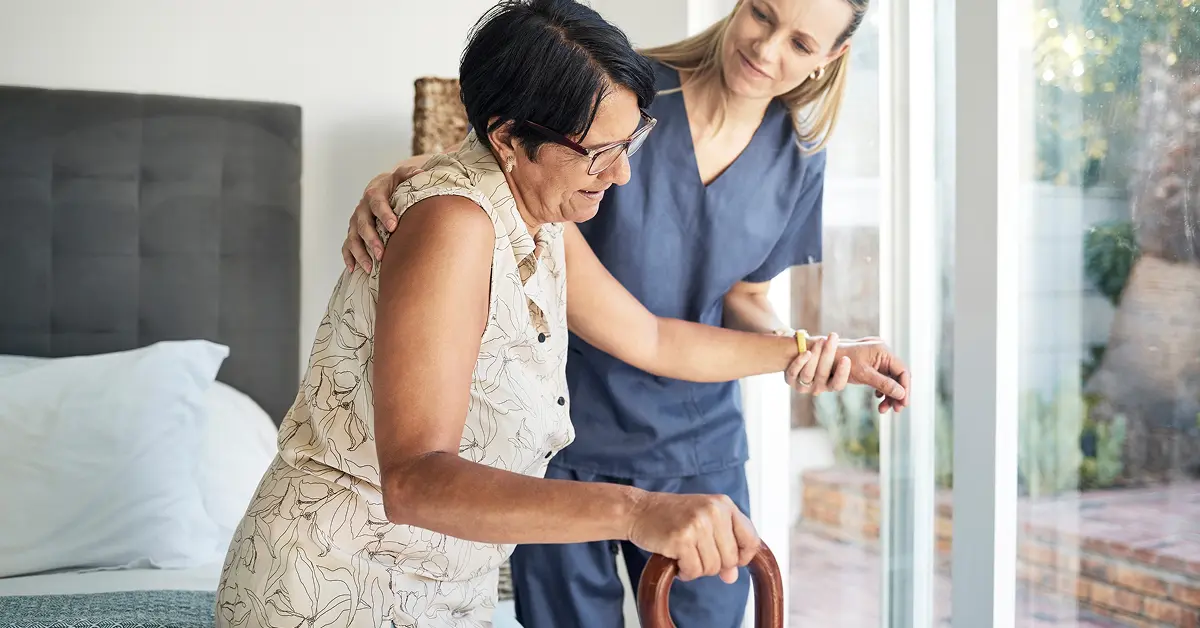Recovering from surgery or managing life as a bedridden patient at home can be a challenging journey. Patients often face difficulties performing even the simplest daily activities, and without proper care, recovery can be slower or complicated by health risks such as infections, bedsores, or improper medication management. This is where skilled helpers for bedridden and post-surgery care play a crucial role in ensuring the patient’s comfort, safety, and overall well-being.
The Importance of Skilled Care at Home
Home care after surgery or for bedridden patients is not just about assistance with basic needs—it’s about providing personalized, professional support that promotes faster recovery and enhances the quality of life. Skilled helpers are trained in various aspects of Patient Care , including mobility assistance, medication administration, hygiene management, and emotional support. Their presence at home reduces the risk of complications and ensures that the patient receives round-the-clock care without the stress and limitations of a hospital environment.
Key Roles and Responsibilities of Skilled Helpers
Mobility Assistance
Patients recovering from surgery or those who are bedridden often face challenges moving around safely. Skilled helpers are trained to assist with transferring patients from the bed to a wheelchair, repositioning to prevent bedsores, and supporting safe walking exercises if mobility is partially restored. Proper handling techniques prevent injuries for both the patient and the caregiver.
Medication Management
Medication schedules after surgery can be complex, requiring accurate timing and dosage. Skilled helpers ensure that the patient takes the right medications at the right time, monitor any side effects, and report concerns promptly to doctors or family members. This reduces the risk of missed doses or harmful drug interactions.
Hygiene and Personal Care
Maintaining hygiene is essential for bedridden patients to prevent infections and skin problems. Skilled helpers provide assistance with bathing, oral care, grooming, and changing bed linens. They also ensure that patients remain clean and comfortable while respecting their dignity and privacy.
Nutrition and Feeding Support
Post-surgery patients often require special diets or feeding assistance. Skilled helpers help prepare nutritious meals, monitor fluid intake, and assist patients who are unable to feed themselves. Proper nutrition plays a key role in wound healing, energy restoration, and overall recovery.
Monitoring Health and Recovery
Professional caregivers are trained to observe vital signs, recognize early symptoms of complications, and report any unusual changes. This proactive monitoring ensures timely medical intervention if needed and contributes to safer recovery at home.
Emotional Support and Companionship
Being bedridden or recovering from surgery can be emotionally taxing. Skilled helpers provide companionship, encouragement, and emotional reassurance, helping patients stay positive, motivated, and engaged during recovery. Emotional well-being is an often-overlooked aspect of the healing process, and a compassionate caregiver can make a significant difference.
Advantages of Hiring Skilled Helpers
- Professional Expertise
- Personalized Care Plans
- 24/7 Availability
- Reduced Risk of Complications
- Support for Family Members
Tips for Choosing the Right Skilled Helper
- Verify Qualifications
- Check Experience
- Assess Communication Skills
- Look for Compassion
- Background Checks and References
The Role of Technology in Enhancing Home Care
Modern home care combines skilled helpers with technology to improve monitoring and recovery. Devices such as blood pressure monitors, oxygen saturation sensors, and mobile apps for medication reminders allow caregivers to provide more efficient and accurate care. Telemedicine consultations can further support patients without frequent hospital visits, making skilled helpers even more effective in ensuring safe and timely care.
Conclusion
Recovery after surgery or living as a bedridden patient at home can be challenging, but with the support of skilled helpers, the journey becomes safer, more comfortable, and emotionally reassuring. Professional caregivers not only assist with daily needs but also promote healing, prevent complications, and provide companionship that improves overall well-being. Investing in skilled helpers is not just about convenience—it is a commitment to quality care and a smoother recovery experience for patients and peace of mind for their families.
Contents
Our 24*7 services
Latest Posts
- What Is Respite Care and Why Is It Important
- Affordable home care for senior citizens in India
- Caring for Seniors with Dementia or Alzheimer's at Home
- Senior Caregiving A Guide for Every Family
- How to Write a Caregiver Resume That Gets You Hired
- How Care After Hospital Discharge Speeds Up Recovery at Home
- How to Get Home Health Care for Seniors Through Medicare
- What Does a Senior Citizen Caregiver Really Do at Home
- How to Care for Elderly Parents with Alzheimer’s or Dementia
- How to Get 24-Hour Care for Seniors at Home



